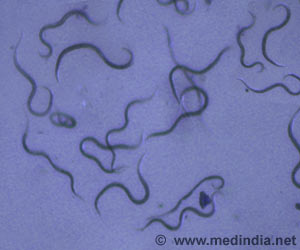
We Get It From Cats
In recent years, Toxoplasmosis gained a somewhat memetic reputation because its main carriers are cats and its primary transmission vector is, well, cat poop. Studies conducted over the last few decades have associated toxoplasmosis with everything from changes in sexual proclivities to higher rates of car accidents, and even a recent study found a correlation between childhood cat ownership and psychosis in adulthood.‘Toxoplasmosis gets attached to the eye and can cause recurring attacks of retinal inflammation and permanent retinal scarring, which is known as ocular toxoplasmosis.’
Tweet it Now
The latest research suggests that anywhere between 30% and 50% of the global population is infected, that percentage may be as high as 66% per a recent community-based study.
Toxoplasmosis Floaters
The parasite can also be spread via undercooked meat that often attacks the retina, and ocular toxoplasmosis is one of the most common afflictions associated with Toxoplasma gondii. It can cause “floaters” that obscure one’s vision and result in vision loss, and can scar the back of the eyeball too.In an analysis of Western Australia’s Busselton Healthy Ageing Study, which took retinal photographs of more than 5,000 baby boomers born between 1946 and 1964, they found that an alarming one in 150 of the eyeball photos showed signs of scarring from ocular toxoplasmosis.
As they noted, there is no drug or vaccine to stop or prevent toxoplasmosis infection currently, and with its estimated rates of prevalence in the global population, it makes Toxoplasma the leader of the parasitic pack.
Researchers are hoping that the experimental toxoplasmosis vaccines been cropping up over recent years get to pharmacies and veterinarians sooner rather than later because the last thing we have is a parasite in our eyeballs.
Source-Medindia












